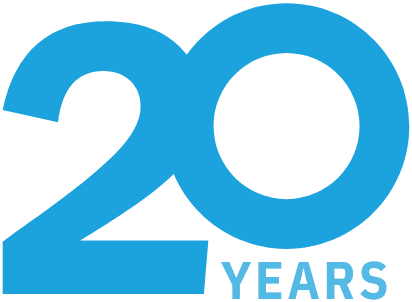In today’s digital age, paper still plays a vital role in our daily lives. Companies and individuals rely on paper for various purposes, from important documents, contracts and notes to sensitive information. However, as paper usage continues to rise, so does the need for proper disposal.
When it comes to discarding paper, two popular methods are shredding and recycling. But what’s the difference, and why does it matter to your organization? Let’s explore more in this blog post.
What is Recycling?
Recycling is the process of collecting used or shredded paper, sorting it and breaking it down into fibres. The fibres are then mixed with water to create a pulp, which is used to make new paper products. Recycling is an eco-friendly way to transform shredded paper and reduce environmental waste. However, it does not protect sensitive documents from data breaches, fraud and identity theft.
What is Shredding?
Shredding is the process of destroying paper documents into small, unreadable pieces using an industrial shredder machine. This destruction of sensitive documents can be done on-site or off-site, depending on the service provider’s offering. On-site destruction involves destroying the documents at your office in a state-of-the-art truck, while off-site destruction involves transporting the documents to a secure shredding facility. Shredding is a safe and effective way to dispose of sensitive information, especially when documents are shredded at your facility.
What’s the Difference Between Shredding and Recycling?
The main difference between shredding and recycling is the purpose of each process. Document destruction protects sensitive data and shredded paper from falling into the wrong hands. However, recycling is done to reduce environmental waste and promote sustainability. While both processes destroy paper, shredding focuses on confidentiality, while recycling focuses on sustainability.
Why Does It Matter?
Choosing the right method of disposing of confidential documents is crucial to protecting your organization from potential data breaches, identity theft and other forms of fraud. At the same time, reducing environmental waste and promoting sustainability is essential. By understanding the differences between shredding and recycling, you can make an informed decision that aligns with your organization’s goals, values and environmental responsibility.
Four Benefits of Shredding
1. Secure Destruction of Sensitive Information
Document destruction is a secure way of disposing of sensitive information so that it does not fall into the wrong hands. By destroying records, you can prevent data breaches, identity theft and fraud, protecting your company’s and customers’ security.
2. Compliance with Privacy Laws and Regulations
Shredding ensures compliance with the Personal Information Protection and Electronic Documents Act (PIPEDA), which is the federal privacy law for private-sector organizations. By destroying shredded paper documents, you can avoid hefty fines, penalties and legal liability for mishandling confidential business information.
3. Cost-Effective and Time-Saving
Working with a professional destruction company can be cost-effective and time-saving. Unlike a basic office shredder that can only destroy small amounts of paper at once, these services can shred and recycle large volumes of documents quickly and efficiently, allowing you to focus on other aspects of your business.
4. Environmentally Friendly
Shredded paper can be recycled, reducing environmental waste and promoting sustainability. By choosing a service provider that also recycles shredded paper, you can ensure that your private documents are securely destroyed while also creating a more sustainable environment.
Four Disadvantages of Recycling
1. Public Accessibility to Documents
Once your recycling bin, trash or clear plastic bags of shredded paper is on the curb, it becomes public property, and anyone can access it. This means that personal information can come in contact with unauthorized individuals, increasing the risk of identity theft, fraud and other crimes.
2. Lack of Document Destruction Proof
When you recycle documents, there is no way to prove when and how they were destroyed. This lack of proof is problematic when you need to validate that confidential records were securely shredded in the event of an audit or litigation.
3. Exposure to Multiple Waste Management Employees
Recycling facilities sort and grade paper before recycling, which requires workers to come in contact with and handle the materials. When multiple employees can access confidential documents, the risk of information breaches and theft increases.
4. Limited Document Types
Recycling is only suitable for certain materials, such as non-confidential recyclables like newspapers, magazines and junk mail. Recycling is inappropriate for confidential documents like contracts, financial statements, medical records and other sensitive materials. Digital media types, unwanted products and hard drives are also challenging and inconvenient to recycle.
Enhance Your Document Security With Blue-Pencil’s Secure Shredding Services
Investing in a document destruction service is one of the best ways to protect your organization’s document security while respecting the environment.
At Blue-Pencil, we offer various service options to keep your confidential data secure. No job is too big or small! We provide affordable one-time and reoccurring mobile shredding services, whether you have piles of paper, old hard drives or unwanted products.
Our NAID AAA Certified shred trucks are operated by highly trained, fully bonded and screened employees that come to your location to collect documents in locked bins throughout your office and transport them to the truck for destruction. You can watch the entire shred procedure on a closed-circuit monitor and feel confident that your company completed the process in compliance with privacy laws. Plus, at the end of every service visit, we provide a Certificate of Destruction to guarantee that your destroyed paper and non-paper media were properly shredded and recycled.
To find out how to boost your document security and improve your company’s sustainability, contact our team to discuss your options or fill out this form to request a free quote today.

